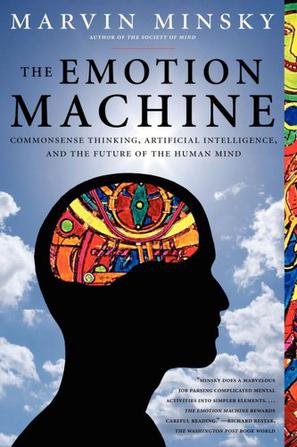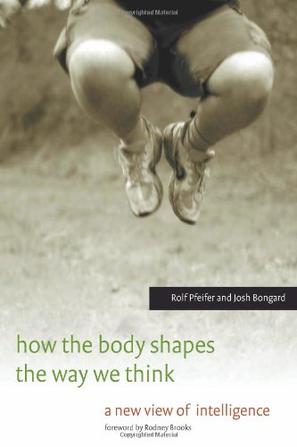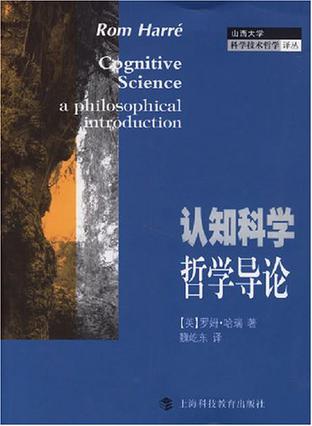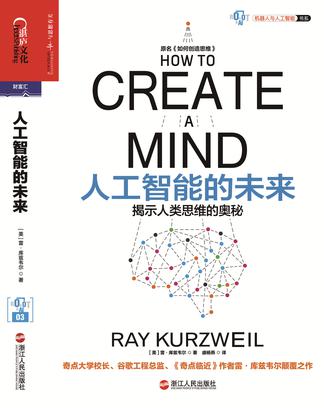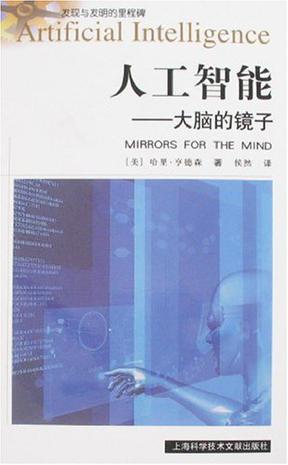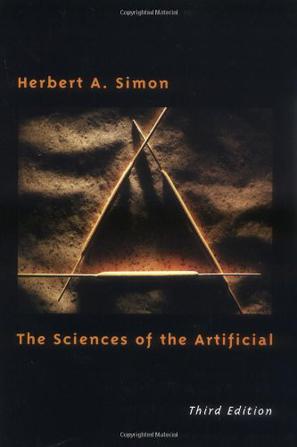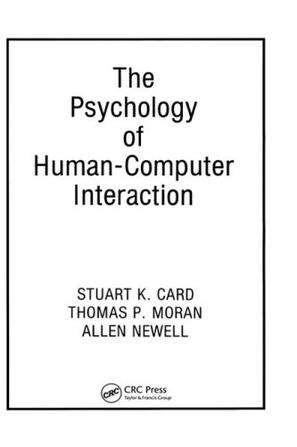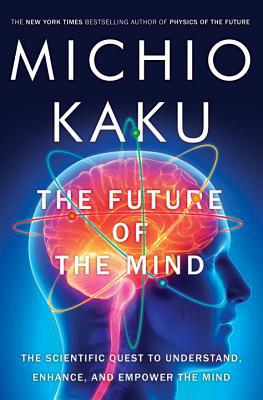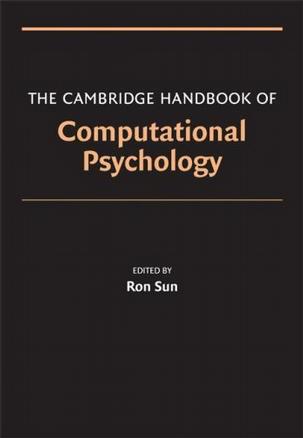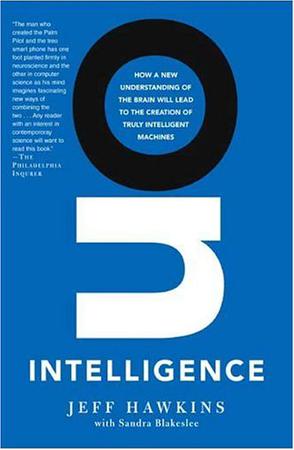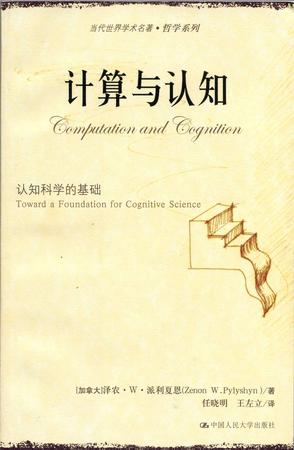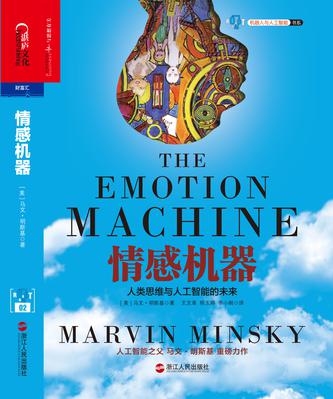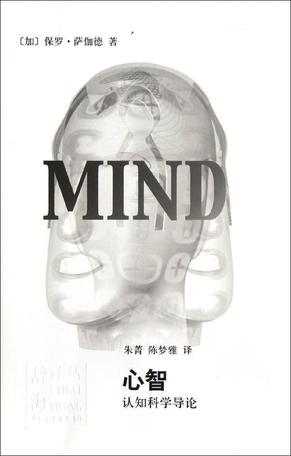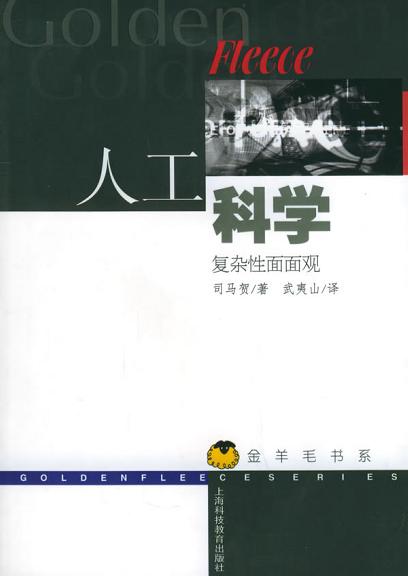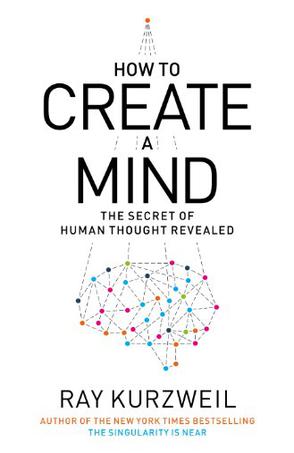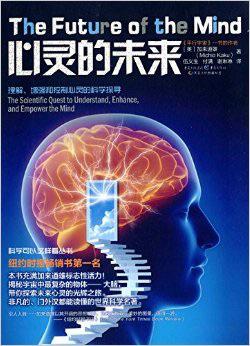欢迎来到相识电子书!
标签:人工智能
-
Vision
David Marr's posthumously published Vision (1982) influenced a generation of brain and cognitive scientists, inspiring many to enter the field. In Vision, Marr describes a general framework for understanding visual perception and touches on broader questions about how the brain and its functions can be studied and understood. Researchers from a range of brain and cognitive sciences have long valued Marr's creativity, intellectual power, and ability to integrate insights and data from neuroscience, psychology, and computation. This MIT Press edition makes Marr's influential work available to a new generation of students and scientists. In Marr's framework, the process of vision constructs a set of representations, starting from a description of the input image and culminating with a description of three-dimensional objects in the surrounding environment. A central theme, and one that has had far-reaching influence in both neuroscience and cognitive science, is the notion of different levels of analysis--in Marr's framework, the computational level, the algorithmic level, and the hardware implementation level. Now, thirty years later, the main problems that occupied Marr remain fundamental open problems in the study of perception. Vision provides inspiration for the continuing efforts to integrate knowledge from cognition and computation to understand vision and the brain. -
The Emotion Machine
In this mind-expanding book, scientific pioneer Marvin Minsky continues his groundbreaking research, offering a fascinating new model for how our minds work. He argues persuasively that emotions, intuitions, and feelings are not distinct things, but different ways of thinking. By examining these different forms of mind activity, Minsky says, we can explain why our thought sometimes takes the form of carefully reasoned analysis and at other times turns to emotion. He shows how our minds progress from simple, instinctive kinds of thought to more complex forms, such as consciousness or self-awareness. And he argues that because we tend to see our thinking as fragmented, we fail to appreciate what powerful thinkers we really are. Indeed, says Minsky, if thinking can be understood as the step-by-step process that it is, then we can build machines -- artificial intelligences -- that not only can assist with our thinking by thinking as we do but have the potential to be as conscious as we are. Eloquently written, The Emotion Machine is an intriguing look into a future where more powerful artificial intelligences await. -
How the Body Shapes the Way We Think
How could the body influence our thinking when it seems obvious that the brain controls the body? In How the Body Shapes the Way We Think, Rolf Pfeifer and Josh Bongard demonstrate that thought is not independent of the body but is tightly constrained, and at the same time enabled, by it. They argue that the kinds of thoughts we are capable of have their foundation in our embodiment--in our morphology and the material properties of our bodies.This crucial notion of embodiment underlies fundamental changes in the field of artificial intelligence over the past two decades, and Pfeifer and Bongard use the basic methodology of artificial intelligence--"understanding by building"--to describe their insights. If we understand how to design and build intelligent systems, they reason, we will better understand intelligence in general. In accessible, nontechnical language, and using many examples, they introduce the basic concepts by building on recent developments in robotics, biology, neuroscience, and psychology to outline a possible theory of intelligence. They illustrate applications of such a theory in ubiquitous computing, business and management, and the psychology of human memory. Embodied intelligence, as described by Pfeifer and Bongard, has important implications for our understanding of both natural and artificial intelligence. -
走近2050:注意力、互联网与人工智能
随着人工智能程序AlphaGo以4:1的大比分战胜人类围棋世界冠军李世石,机器将征服人类的担忧正在甚嚣尘上。《走近2050》则为我们描绘了一幅人机和谐共生、协同演化的全新场景。在看得见的未来,人类将越来越多地沉浸于五花八门的虚拟世界以获取各式体验,与此同时,我们将心甘情愿地将自己的注意力源源不断地输入给机器世界以促使它们进化。 -
认知科学哲学导论
本书是第一本对认知科学作全面综合述评的重要教材。其内容涵盖了从神经过程的人工智能模型到最近提出的漫述理论和文化理论。罗姆·哈瑞对该领域作了一个全新的、易于理解的整合。该教材的核心内容是论述“心理学如何能够成为一门科学?”这一问题。其答案建立在对自然科学中的方法和解释所作的清晰说明的基础上,并阐述了自然科学如何被应用于心理学研究。 本书语言流畅,结构合理,对于想对表面上分为意义研究和神经科学研究的这门学科最新状况进行全面把握的学生来说,是一本理想的教材。它分为四篇,每一篇包括三章。每章都为研习者提供了有帮助的学习要点、自测思考题和重要的阅读材料。 《认知科学哲学导论》对无论是过去的还是现在的各种观点进行了出色的审视,真正为新一代心理学学生引入了“心灵的科学”。它既是学习认知科学和认知心理学的各年级学生必不可少的读物,也是社会心理学、人工智能、心灵哲学和语言学等其他领域的学生有用的辅助读物。 -
人工智能的未来
1. 《人工智能的未来》作者库兹韦尔认为,2045年,人工智能将超越人类智能,储存在云端的“仿生大脑新皮质”与人类的大脑新皮质将实现“对接”,世界将开启一个新的文明时代,“奇点”到来!那个时候,我们是谁?我们是什么?人还能称之为人吗? 2.库兹韦尔把“奇点”当作一个绝佳的“隐喻”:当智能机器的能力跨越这一临界点之后,人类的知识单元、链接数目、思考能力,将旋即步入令人眩晕的加速喷发状态——一切传统的和习以为常的认识、理念、常识,将统统不复存在,所欲的智能装置、新的人机复合体将进入“苏醒”状态。 3.库兹韦尔通过对人类思维本质的全新思考,大胆地预言了人工智能的未来。他坚信,未来人类一定会制造出可与人脑相媲美的“仿生大脑新皮质”。它们甚至比人脑更具可塑性,并可放置在云端,与遥远的人类生物大脑远程相连。那时,或许人工智能真的能够与人类相媲美! -
人工智能
本书以人工智能发展过程和该领域具有标志性意义的科学家为线索,向人们介绍了该学科在整个发展过程中的许多重大事件。它既可以为相关研究提供参考,同时也不失为一部饶有趣味的科学普及书籍。 -
The Sciences of the Artificial
Continuing his exploration of the organization of complexity and the science of design, this new edition of Herbert Simon's classic work on artificial intelligence adds a chapter that sorts out the current themes and tools -- chaos, adaptive systems, genetic algorithms -- for analyzing complexity and complex systems.There are updates throughout the book as well. These take into account important advances in cognitive psychology and the science of design while confirming and extending the book's basic thesis: that a physical symbol system has the necessary and sufficient means for intelligent action. The chapter "Economic Reality" has also been revised to reflect a change in emphasis in Simon's thinking about the respective roles of organizations and markets in economic systems. -
情感计算
《情感计算》主要内容:目前这个世界与我当时写这《情感计算》时大不一样。当时情感计算几乎是令人困惑的,只有极 少数的计算机界科学家或工程师愿意投入此项工作。计算机本身具有类似于情感机制的这种 观点不是新的,它在Cap&Brother剧本R.U.R.创造出世界“机器人”这一词时就出现了,但具有有效情感机制的计算机实际上并不存在。有关人工智能的会议要么是忽视情感,要么是把情感边缘化。情感智能的观念在心理学和认知科学中变得越发重要,但没有人把它应用到人机交互中。神经科学和心理学上早已发现关于情感在决策、感知、创造性等方面的作用,而计算科学在很大程度上并不知晓。许多人不知道情感有助于理性和智能行为,普遍认为计算机的情感是一种空洞无聊的东西,就像蛋糕表面上的一层糖霜,可以用来使之更为悦目,但没有真正实质上的意义。 我感谢当时与我讨论情感计算的几个同事。在出版《情感计算》的前一年,我记得,麻省理工学院(MIT)人工智能实验室的一批研究人员邀请我发言,他们对以下问题十分感兴趣,即赋予计算机以类似情感机制这件事的重要程度如何,以及为什么这件事能对人工智能有用?情感即使带来好处,是否会造成更多的麻烦?答案不太明显,需要加以解释;而他们很欢迎这方面的证据。媒体实验室及其他单位的一些人员愿意听我的论证、提出问题、提出他们的想法和批评意见,甚至协作研究,得出了新的悟解。有些人特别是一些尚未取得终身任职的学术界的同行告诉我说:我的想法是荒唐的,我已经享有严肃研究者的声誉,致力于机器具有情感的研究可能会毁掉我的名誉。我记得我曾深刻内省,以决定是否继续从事这项研究。坦率地说,如果我工作在传统的学术部门,而不是在这样一个实验室,那里的领导层,特别是JerryWiesner和NicholasNegronte,经常公开地称颂大胆的想法并强烈鼓励冒险,我是不会像这样全心全意投入这项研究的。 已经过去五年多了。今天,很难想像当时我竟会感到那样害怕。计算机中情感的研究,已经为很多学术界和工业界顶级的研究实验室接受,并引起了国际上的重大关注。 自从《情感计算》出版后,已经有20多个专题讨论会、会议以及特定集会,其主题均围绕情感和计算机运算,而且通常把情感计算列为一个学科领域。我不能、也不会对世界上这种改变自我居功。事实是,真理不依赖任何个人的努力而找到自己前进的道路。在追求它的过程中,我们在黑暗中苦苦探求、苦苦摸索,而不变的真理按自己的条件终于显露出来。试图理解情感就是试图认识事物的真实面目。最终,我们可以清楚地看到事物的原貌,理解人工智能和一切人类进程是如何进行的。 -
The Future of the Mind
The New York Times best-selling author of PHYSICS OF THE IMPOSSIBLE, PHYSICS OF THE FUTURE and HYPERSPACE tackles the most fascinating and complex object in the known universe: the human brain. For the first time in history, the secrets of the living brain are being revealed by a battery of high tech brain scans devised by physicists. Now what was once solely the province of science fiction has become a startling reality. Recording memories, telepathy, videotaping our dreams, mind control, avatars, and telekinesis are not only possible; they already exist. THE FUTURE OF THE MIND gives us an authoritative and compelling look at the astonishing research being done in top laboratories around the world—all based on the latest advancements in neuroscience and physics. One day we might have a "smart pill" that can enhance our cognition; be able to upload our brain to a computer, neuron for neuron; send thoughts and emotions around the world on a "brain-net"; control computers and robots with our mind; push the very limits of immortality; and perhaps even send our consciousness across the universe. Dr. Kaku takes us on a grand tour of what the future might hold, giving us not only a solid sense of how the brain functions but also how these technologies will change our daily lives. He even presents a radically new way to think about "consciousness" and applies it to provide fresh insight into mental illness, artificial intelligence and alien consciousness. With Dr. Kaku's deep understanding of modern science and keen eye for future developments, THE FUTURE OF THE MIND is a scientific tour de force--an extraordinary, mind-boggling exploration of the frontiers of neuroscience. -
The Cambridge Handbook of Computational Psychology (Cambridge Handbook Of...)
This book is a definitive reference source for the growing, increasingly more important, and interdisciplinary field of computational cognitive modeling. Research in computational cognitive modeling explores cognition through developing detailed, process-based understanding by specifying computational mechanisms, structures, and processes. This book substantiates this approach through overviews and many examples. -
On Intelligence
From the inventor of the PalmPilot comes a new and compelling theory of intelligence, brain function, and the future of intelligent machines Jeff Hawkins, the man who created the PalmPilot, Treo smart phone, and other handheld devices, has reshaped our relationship to computers. Now he stands ready to revolutionize both neuroscience and computing in one stroke, with a new understanding of intelligence itself. Hawkins develops a powerful theory of how the human brain works, explaining why computers are not intelligent and how, based on this new theory, we can finally build intelligent machines. The brain is not a computer, but a memory system that stores experiences in a way that reflects the true structure of the world, remembering sequences of events and their nested relationships and making predictions based on those memories. It is this memory-prediction system that forms the basis of intelligence, perception, creativity, and even consciousness. In an engaging style that will captivate audiences from the merely curious to the professional scientist, Hawkins shows how a clear understanding of how the brain works will make it possible for us to build intelligent machines, in silicon, that will exceed our human ability in surprising ways. Written with acclaimed science writer Sandra Blakeslee, "On Intelligence" promises to completely transfigure the possibilities of the technology age. It is a landmark book in its scope and clarity. -
计算与认知
《计算与认知:认知科学的基础》对计算和心理现象做了系统深入的研究,对认知科学的逻辑理解做了极具穿透力的有用分析。本书还详细论述了认知主义及其相关的意向性、功能与计算方面的问题,尤其是对于指导认知科学研究的基础性假定做了全面细致的研究。 -
情感机器
1.大脑如何产生新想法?思维如何产生,又是如何运作的?意识缘何形成?什么是情感、感觉、想法?如果将人类大脑看成一台机器,那么这是否有益于我们设计出能够像人一样能理解、会思考的高级人工智能——情感机器? 2.情感是人类特有的一种思维方式,如果机器具备了情感,是不是就可以取代人类? 在《情感机器》中,人工智能之父马文•明斯基有力地论证了:情感、直觉和情绪并不是与众不同的东西,而只是一种人类特有的思维方式。也同时揭示了为什么人类思维有时需要理性推理,而有时又会转向情感的奥秘。通过对人类思维方式建模,他为我们剖析了人类思维的本质,为大众提供了一幅创建能理解、会思考、具备人类意识、常识性思考能力,乃至自我观念的情感机器的路线图。 -
大脑如何思维
本书总结了人类研究大脑如何思维的历史,展现了智力的本质、基础、进化过程及与意识的关系,对大脑的运作机制进行探讨,同时展望了超人智力。本书的语言简洁、生动,是一本非常精彩的科普读物。 皮亚杰曾说,智力是你不知怎么办时动用的东西。那么,智力的本质是什么?动物的智力如何向人类的智力进化?它的基础是什么?这些问题都指引着我们探讨大脑是如何思维的。本书正是一本描述大脑如何工作的优秀科普读物。本书总结了人类研究大脑如何思维的历史,展现了智力的本质、基础、进化过程及与意识的关系,对大脑的运作机制进行探讨,同时展望了超人智力。 -
心智
认知科学是对人类心智的跨学科研究,涵盖哲学、心理学、人工智能、神经科学、语言学和人类学等相关领域。起源于20世纪50年代中后期,在70年代末形成了正式的学术共同体,认知科学这门新兴的交叉学科呈现出方兴未艾、蓬勃发展的强盛势头。中国认知科学学会于2011年底正式成立,为认知科学在中国的发展与普及,创造了有利的条件。 -
人工科学
本书是诺贝尔经济学奖得主司马贺的代表作之一,是1996年修订出版的第三版的中译本。第三版增加了全新的一章“复杂性面面观”,修改了文字内容并更新了部分数据。 作者率先构造出“人工科学”的概念,据以将经济学、思维心理学、学习科学、设计科学、管理学、复杂性研究等领域贯穿联系起来,使人获得很多启迪。本书对传统思维提出挑战,指出人工智能所期望达到的领域,揭示了人工性和层级对于复杂性的意义,从多个领域说明人工科学何以是可能的,并试图说明它的性质。本书的基本主题是:物质符号系统具备必要和充分的手段来采取智能行动。
热门标签
下载排行榜
- 1 梦的解析:最佳译本
- 2 李鸿章全传
- 3 淡定的智慧
- 4 心理操控术
- 5 哈佛口才课
- 6 俗世奇人
- 7 日瓦戈医生
- 8 笑死你的逻辑学
- 9 历史老师没教过的历史
- 10 1分钟和陌生人成为朋友


